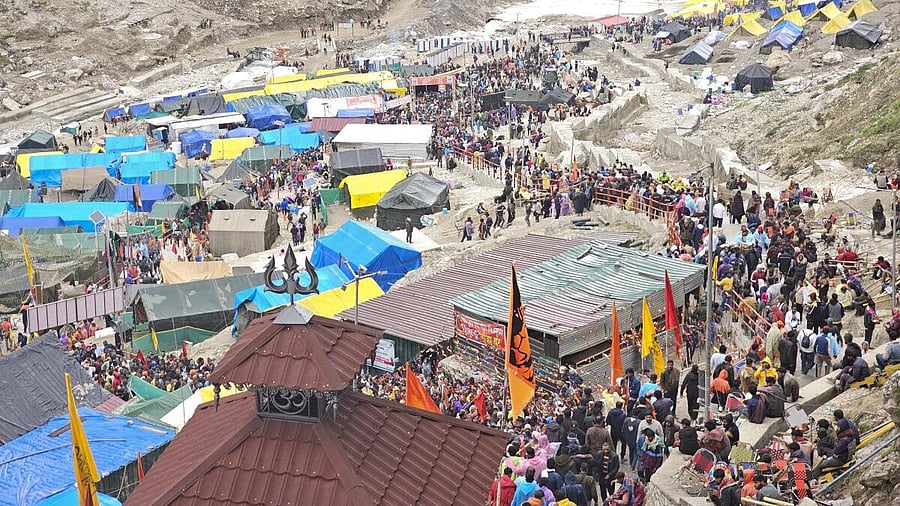
Amarnath Yatra 2024
Credit: PTI Photo
Srinagar: Even as security agencies brace for the annual Amarnath Yatra with an unprecedented protective grid following the deadly April 22 terror attack in Pahalgam, the pilgrimage’s real strength continues to lie in the unyielding support of Kashmiri Muslims, who for decades have been the invisible backbone of this massive spiritual journey.
The yatra, set to begin on July 3, comes just over two months after terrorists struck in the Pahalgam area, killing 25 tourists and injuring 16, triggering shock and fear across the Valley.
In response, security forces and the civil administration have rolled out the most comprehensive security plan in years.
Yet amid the fear and high alert, thousands of local Muslims — pony-wallas, porters, cooks, tent owners, drivers and volunteers — are once again preparing to serve the yatris with warmth, commitment and silent dignity, just as they have done through conflict, curfews, and calamities.
“This yatra is part of our shared culture. Our forefathers served the pilgrims, and so do we,” says Ghulam Hassan, a ponnywalla in Pahalgam. “Terrorism cannot shake our faith in humanity.”
Heavy security bandobast
Jammu and Kashmir police chief Nalin Prabhat, who has been monitoring the security arrangements for the yatra, has directed field officers to adopt a zero-compromise approach to security, calling for strict implementation of SOPs, deployment of anti-sabotage teams, and use of advanced surveillance technologies for real-time monitoring.
“We have to dismantle the terror ecosystem and maintain a robust security grid throughout the Yatra period. Field officers must remain alert and focused to ensure the highest level of preparedness and public safety,” Prabhat said in a security briefing.
Thousands of paramilitary personnel have been deployed along the twin routes of Pahalgam and Baltal, while Road Opening Parties (ROPs), drones, RFID tracking, and biometric registration have been made part of daily protocols.
Stakeholder outreach: LG, CM meet civil society
As part of a community outreach, Lieutenant Governor Manoj Sinha and Chief Minister Omar Abdullah jointly interacted with over 80 stakeholders, including local traders, transporters, religious leaders, and tourism sector representatives.
The leaders acknowledged that beyond the police and army, it is the local Muslim community that plays a central role in sustaining the yatra. “It is a people's yatra. Every section of society has extended its full support to ensure the pilgrimage is conducted peacefully and successfully,” Sinha said.
Faith stronger than fear
Despite the grim memories of the April 22 attack, around 236,000 pilgrims had registered for the yatra before the terror attack. Last year, around 512,000 pilgrims had performed the yatra, the highest in over a decade.
Many pilgrims say they are reassured not just by the security arrangements but by the unwavering support of Kashmir’s local population.
“The confidence among the pilgrims is returning due to the steps taken by the Jammu and Kashmir Administration and the security forces which has resulted in the registrations picking up again,” LG Sinha said in a recent presser.
Every year, hundreds of thousands of Hindu devotees from across the country visit the cave shrine of Amarnath situated at a height of 3,880 metre in the Himalayas passing through treacherous mountain routes, glaciers and ice fed streams. Pahalgam is one of the two main base camps of the yatra.
A legacy of harmony
For generations, the yatra has not just been a journey of faith, but a shining example of communal cooperation in a conflict-hit land. During past crises — from floods to militant strikes — it has often been local Muslim youths who carried the elderly pilgrims on their backs, offered shelter, or helped locate missing persons.
As the yatra starts this year in a few days time under the heaviest security ever mounted, the government may be providing the guns and cameras — but the heart of the yatra still beats in the hands of Kashmiris who have quietly kept it alive for decades.